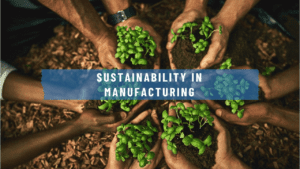By Rajul Malde
The world economy is in a state of uncertainty characterised by rising inflation attributed to the lingering impact of Covid-19 pandemic on global supply chains and the protracted conflict in Ukraine. The surge in prices of goods and services is driving individuals and households to cut back on spending. The cost of living crisis is not a uniquely Kenyan phenomenon but is happening everywhere in the world even in the developed economies.
For the manufacturing sector, this decline in consumer spending means reduced production to curb excess inventory and manage escalating costs of production, resulting in loss of jobs and revenue for companies. Such a scenario dictates that manufacturers engage survival gear through cost reduction while devising strategies to sustain consumer confidence in order to remain afloat in such a hostile economic environment.
According to the Cambridge Dictionary, consumer confidence is “the degree to which people feel confident about how well the economy is doing, which influences how much money they are willing to spend.” This implies a direct correlation between the state of the economy and level of consumer spending. A consumer confidence index is a tool used to gauge how much people are spending on goods and services vis-à-vis the prevailing market conditions.
For example, the Ipsos consumer confidence index this month is at 47.2 per cent compared to about 50 per cent in 2018 signifying a general fall in optimism in countries around the world. The survey covered 29,000 adults in 29 markets and was conducted online. Closer home, a similar survey by Kasi Insights in Cote d’Ivoire, Kenya, Nigeria and Tanzania, shows a slump in consumer sentiment early this year.
With the International Monetary Fund (IMF) warning of an economic recession, things can only get tougher for manufacturers. A report by Deloitte shows manufacturing declines by about 11 per cent during recessions. On the flip side, the manufacturing sector is among the fastest to rebound after an economic downturn. The resilience of the sector is down to certain dynamics around consumer behavior.
With the economic situation of many households deteriorating due to expenditure exceeding disposable income, more consumers are switching from higher-end or larger products to lower-priced, smaller units in order to survive. This phenomenon is known as downtrading and occurs when the purchasing power of consumers is under pressure.
For manufacturers, this presents an opportunity to offer consumers quality products at the desired quantity and price point. Downtrading does not necessarily mean the buyer is willing to compromise on quality. It simply means they are seeking more affordable options to sustain their current lifestyle while spending less. Transitioning to budget-friendly products is not new in Kenya, with the “kadogo” economy having been around for many years. This is where individuals purchase a smaller unit of a brand at a price that suits their pocket. They still enjoy the same quality notwithstanding quantity and price differential.
This is how many consumer brands have been able to attract and retain a loyal clientele even in the lower income bracket. Analysis by market research firm Nielsen in 2018, reported that more than 70 per cent of fast-moving consumer goods (FMCGs) in Kenya are priced below Ksh 55. Interestingly, the same research discovered that much as consumers are increasingly price conscious, they are also looking for value and are willing to pay more for quality products.
Quality is everything. As Henry Royce, co-founder of the famous Rolls Royce automaker, said, “the quality will remain long after the price is forgotten.” This means a business cannot afford to compromise on quality regardless of the price it sells its products. And quality goes beyond complying with set technical standards and product specifications, but crucially, meeting and surpassing customer expectations.
The sweet spot where consumer expectations meet price is quality hence the need for manufacturers to continue paying attention to quality and innovation in spite of the challenging economic times. This sounds counter-intuitive but is the only way of sustaining operations against weaker consumer demand and ensuring quicker industrial recovery once the current unfavorable conditions subside. Moreover, quality products also safeguard consumer health and wellbeing.
Mr. Malde is Commercial Director, Pwani Oil Products Limited. His email is rajul.malde@pwani.net



